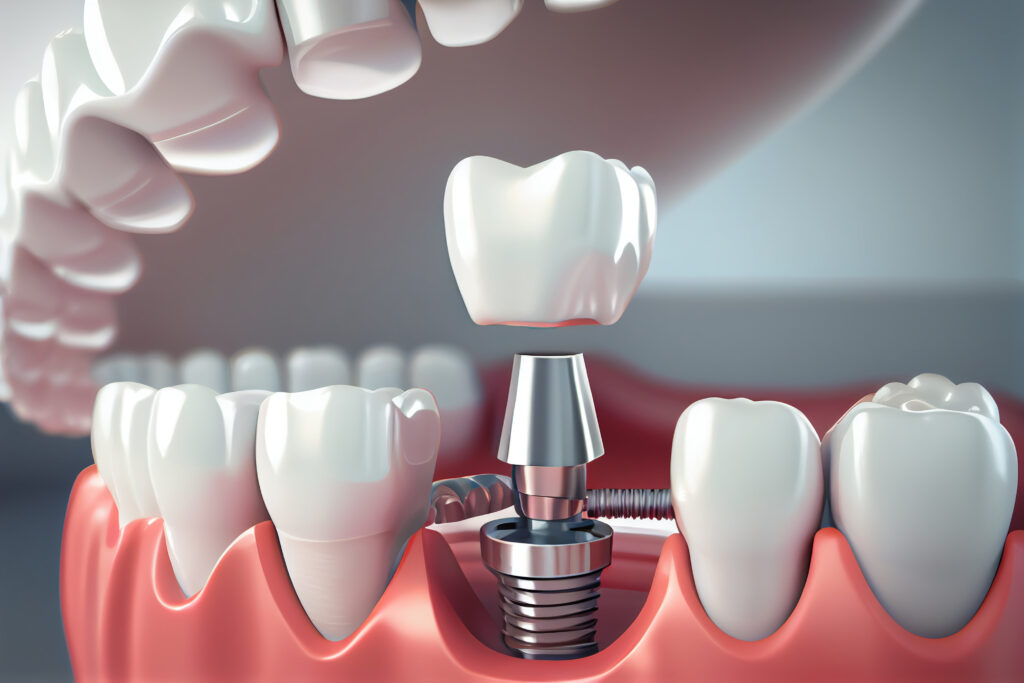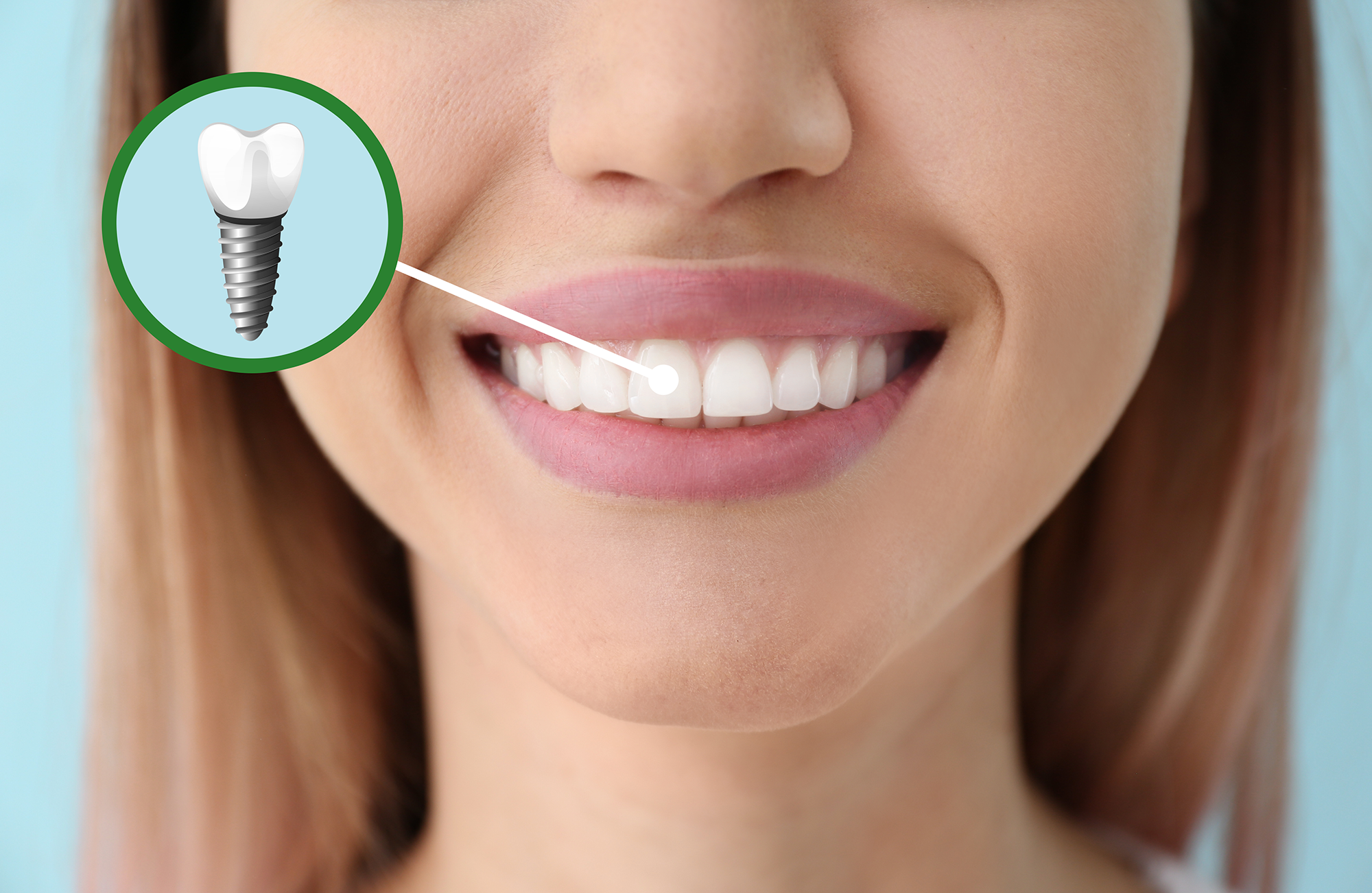Dental Implants Near Me Grand Haven MI - What are dental Implants? Types, procedures, and more
Tooth extraction is a common dental procedure that could be necessary because of numerous reasons, corresponding to dental decay, gum disease, or overcrowding. After a tooth is extracted, many individuals think about getting dental implants as a more everlasting answer to switch the missing tooth. However, a important query stays: how long why not try this out after tooth extraction can you get a dental implant? The answer to this read the full info here question depends on multiple elements, including the healing process, the condition of the jawbone, and the overall health of the individual.
Immediately after a tooth extraction, the body begins a healing process. This process typically involves the formation of a blood clot at the extraction site, which is essential for correct therapeutic. In the primary few days following the extraction, it's important to avoid disturbing the clot to stop complications such as dry socket. Throughout the healing course of, the gum tissue will steadily close up, and the bone will start to heal.
Dental Teeth Implants Grand Rapids MI - Dental Implants: A 5-step plan to restoring your teeth
Generally, the initial therapeutic phase after an extraction takes about one to two weeks. During this time, the chance of complications is heightened, so most dentists advise sufferers to wait until the gums have totally healed before contemplating implant placement. It's important to remember that while the gum tissue could heal shortly, the underlying bone may require more time to regain its energy and density.
In some cases, the condition of the jawbone can significantly have an result on the timeline for dental implants. If the jawbone is healthy and dense, it might present a strong basis for the implant relatively soon after the extraction. However, if there was bone loss or deterioration because of periodontal disease or the spacing of the tooth, additional procedures similar to bone grafting may be necessary. Bone grafting is completed to enhance or rebuild the bone to support an implant.
Implants Dental Implants Grand Rapids MI - Dental Implants - an overview
For patients who need bone grafting, the general timeline might prolong considerably. Initial healing from a bone graft can take several months, relying on the individual’s therapeutic capacity and the complexity of the grafting process performed. After the grafting site has healed, extra time is often required for the bone to integrate with the implant.
Another factor affecting the timing of dental implant placement is the sort of extraction carried out. A simple extraction, the place the tooth is definitely removed, could pave the finest way for a quicker recovery compared to a surgical extraction, which could involve chopping through the gum tissue or bone. Surgical extractions usually end in more trauma to the encircling space, necessitating a longer therapeutic time before implant placement can be thought-about.
Dentists often conduct an analysis after the extraction to find out the readiness for an implant. This analysis usually features a medical exam and imaging checks like X-rays or CT scans to assess the condition of the bone and surrounding tissues. The visible data gathered will inform the dentist if the bone quality and amount are enough for implant placement.
Dental Tooth Implant Walker MI - Dental Implants - an overview
Patients are also encouraged to maintain up with common dental check-ups through the healing phase. These check-ups are instrumental in monitoring the therapeutic progress, addressing any issues swiftly, and figuring out when the patient is ready for an implant. Engaging in good oral hygiene practices throughout this period is important to promote therapeutic and stop infections.
Every individual’s healing process is exclusive. Factors similar to age, overall health, lifestyle selections like smoking, and even genetics can influence healing instances. A younger individual with sturdy health might heal more rapidly than an older affected person or someone with underlying health points that would delay the healing process.
Once the dentist evaluates that adequate healing has occurred, the implant process could be scheduled - Dental Implants And Dentures Walker MI. This procedure often involves putting a titanium publish into the jawbone, which acts as the synthetic root of the missing tooth. After the implant is positioned, further therapeutic time is required for osseointegration, a process the place the bone fuses to the implant. This phase can take several months
In some situations, the dentist might suggest instant implant placement following extraction if the extraction site is appropriate. Immediate placement can help protect bone density and limit the overall therapy time. However, this feature requires an intensive assessment to be deemed appropriate, as not everyone is a candidate.
Dental Implant Dentures Walker MI - Dental Implants: Tooth Replacement Solution
Ultimately, individual circumstances dictate the timeline for transitioning from tooth extraction to dental implant placement (Full Mouth Dental Implants Muskegon MI). Recovery timelines can range from a number of weeks to some months and even longer, relying on the complexity of the case, the condition of the jawbone, and different healthcare components
In conclusion, understanding how long after tooth extraction one can get a dental implant is essential for efficient dental planning. Proper evaluations and individualized remedy plans are at the heart of making certain a successful transition from extraction to implant placement. Being aware of the body's healing course of and staying in communication with dental professionals can result in optimal outcomes for those opting for dental implants. Following extraction, patience is necessary, as rushing into the process can jeopardize the success of the implant. Therefore, it's critical for sufferers to maintain an open dialogue with their dental group to facilitate a clean and effective remedy journey.
- The therapeutic interval after a tooth extraction varies however sometimes ranges from 4 to 6 weeks earlier than contemplating a dental implant.
- Bone density and condition play a vital position in determining the timeline for the implant procedure, with denser bone allowing for quicker placement.
- Patients with underlying health points might require a longer recovery time, potentially extending the ready interval for implants.
- The presence of infection or problems during the extraction can delay the timeline for implant placement.
- It is advisable to undergo an intensive evaluation and imaging to evaluate the extraction website before scheduling an implant.
- Some practitioners could suggest waiting as much as several months for optimum healing and integration of the bone.
- In circumstances of quick implant placement (same day as extraction), special concerns and methods are required.
- Follow-up consultations are essential to observe healing before continuing with implant surgery.
- Adequate oral hygiene through the recovery course of is significant for reducing issues and making certain well timed implant readiness.
- Individual recovery experiences can considerably differ, making personalized medical recommendation essential in determining the exact ready period.undefinedHow long after tooth extraction can you get a dental implant?
What is the typical therapeutic time after a tooth extraction before contemplating an implant?undefinedThe typical healing time can range, but most dentists suggest waiting about 3 to 6 months after a tooth extraction earlier than inserting a dental implant to ensure correct healing and bone integration.
Implant Dental Jenison MI - Affordable Dental Implants
Can I get a dental implant instantly after tooth extraction?undefinedIn some cases, quick implants may be positioned right after tooth extraction if the bone structure is enough and the infection risk is low. Your dentist will consider your particular condition to find out if this is a viable choice.
What components affect the timing of dental implants after extraction?undefinedFactors embody the healing capacity of the individual, the complexity of the extraction, the condition of the jawbone, and any underlying health issues. A dental skilled can present customized recommendation primarily based on these factors.

Are there any risks associated with putting a dental implant too quickly after extraction?undefinedYes, inserting an implant too soon may lead to complications similar to infection, implant failure, or inadequate bone integration. It is crucial to follow your dentist’s timeline for optimal results.
Denture Dental Implants Wyoming MI - Dental Implants Procedure: What to Know
How does bone health have an result on the timing of dental implants after tooth extraction?undefinedHealthy bone is crucial for successful implant placement. If the bone has deteriorated after extraction, it could require procedures like bone grafting, which may lengthen the ready period earlier than an implant can be positioned.
What sort of care is essential in the course of the healing interval after tooth extraction?undefinedProper oral hygiene, following post-operative care instructions, avoiding hard meals, and attending follow-up appointments are essential to foster optimum healing and reduce complications.

Can I endure further dental procedures while ready for an implant after extraction?undefinedIn many instances, yes - Dental Implants Whole Mouth Jenison MI. However, consult along with your dentist concerning the suitability and timing of different procedures, as they may impression the healing course of or the placement of the implant
Implant Dental Holland MI - Dental Implants services
How can I guarantee the most effective outcomes for my dental implant after extraction?undefinedMaintaining good oral hygiene, following your dentist’s care directions, avoiding smoking, and attending all follow-up appointments can considerably enhance the probabilities of a successful implant outcome.
Comments on “Dental Implants Affordable Muskegon MI - Dental Implants - Conditions & Treatments”